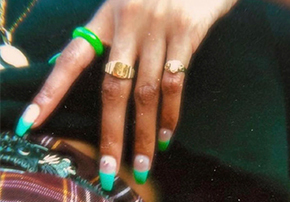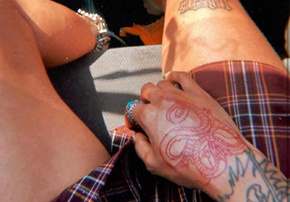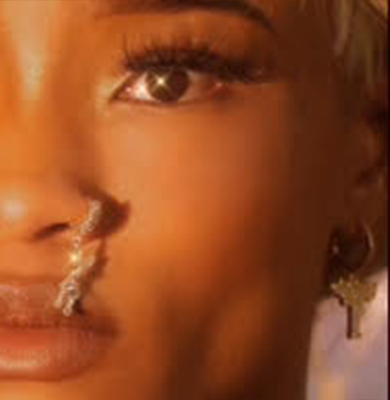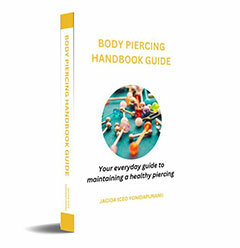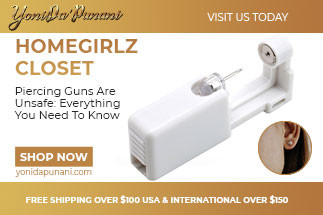Posted by YoniDa'Punani on 20th Aug 2022
Piercing Guns Are Unsafe: Everything You Need To Know
Piercing Guns Are Unsafe: Everything You Need To Know
Tattooing and piercing are usual practices and fashion trends these days. However, you must get a piercing and know everything before getting your kid's ear piercing. For instance, How safe piercing guns are. Well, a piercing gun is the most common tool for body piercing. It has a piercing tool at the end of its barrel, a front slot for a stud or earring, and a back clasp, typically a butterfly clip.
Firstly the piercer inserts your earlobe into the gap between the two sections. Then, pulls the trigger to force the earring's shaft through your ear and into its clasp. However, using a gun is not so safe. It can harm you in multiple ways.
So, read on to know the risks associated with using a piercing gun for body piercing.
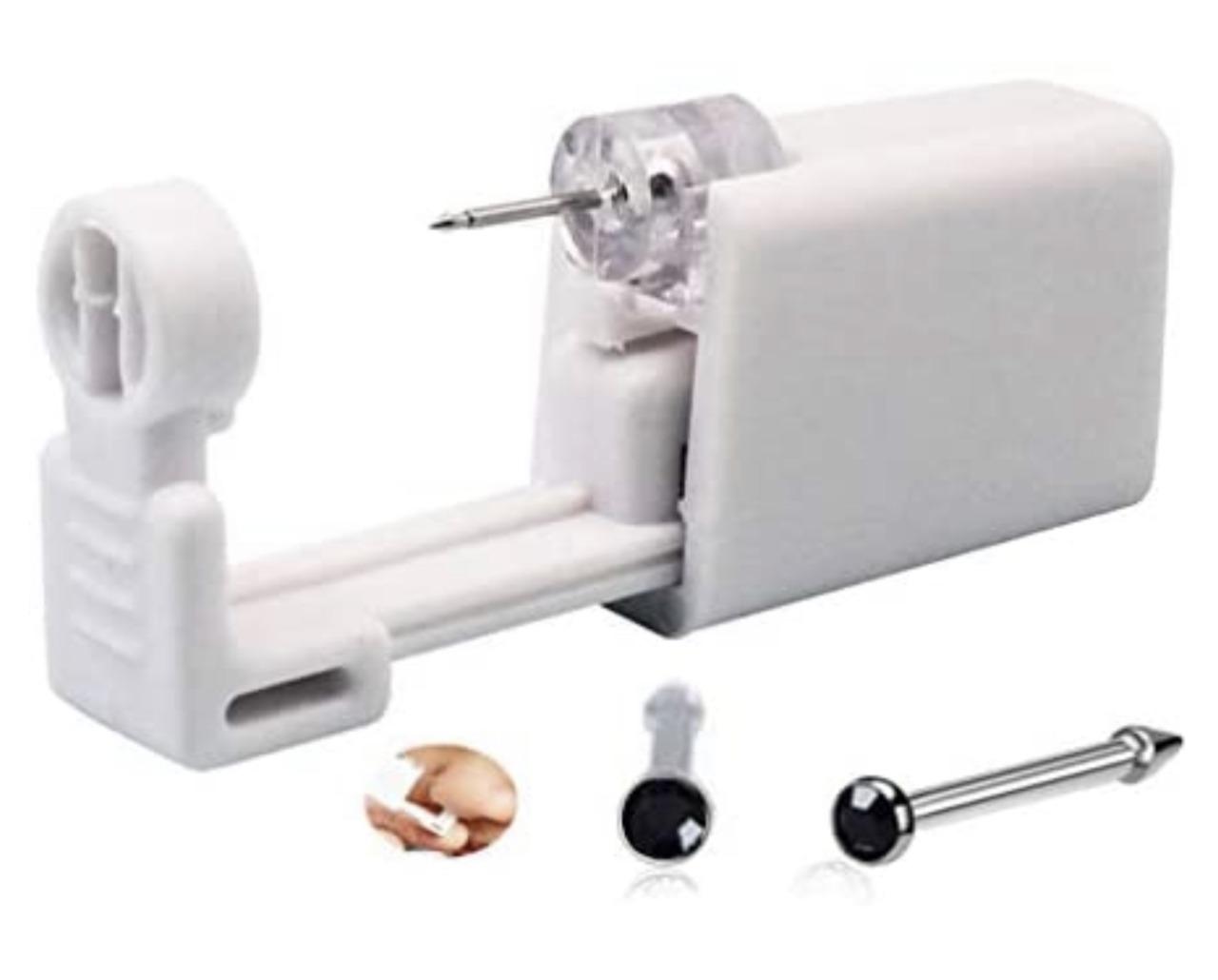
Inappropriate Use Of Piercing Guns
Many manufacturers' instructors and piercing gun brands banned the use of guns on body parts other than ear lobes. Still, some piercers use ear stud guns to puncture ear cartilage, noses, navels, brows, lips, and other body parts other than the ears. It results in severe tissue damage and infections. Therefore, it is unacceptable and quite risky. So, make sure you check with the gun compatibility.
Blunt-end Ear Piercing:
Piercers using guns insert blunt-ended studs into the tissue of your ears with high pressure rather than sharp needles. Therefore, it causes severe pain and can result in significant tissue injury. A jewelry gun pushes the stud into your ear forcefully, irritating and damaging the tissues. This blunt end piercing can rupture the tissue, which does not heal so early.
Contrastingly, a piercing expert can pierce you using a razor-sharp hollow needle through the skin without causing tissue damage. Therefore, it is far better to consult a professional than a piercing gun.
Slow Healing Process:
Blunt force piercing with a gun slows the healing process since it damages the soft tissues and cartilage rather than poking a hole from a pointed needle. Therefore, your gun piercing will take at least a year to heal.
Additionally, piercings with a gun can cause the subcutaneous skin to separate from the cartilage tissue. These gaps are prone to swells and lump formation due to the collection of body fluids. So, if you get a piercing with a gun, it might cause acute swelling and persistent tissue lumps at the piercing site.
As we know, cartilage has less blood supply than lobe tissue. Hence, it heals more slowly. Therefore, infections in cartilage are significantly more common and can be far more damaging. Non-sterile piercing guns and inadequate aftercare causes severe damage to cartilage tissue. It can cause structural ear tissue deformation and collapse, which requires antibiotic medication and reconstructive surgeries.
That's why we suggest never going for cartilage piercing with a gun!
Disease Transmission:
Piercers do not sterilize their piercing guns using the correct method, even though they can become infected with blood-borne pathogens numerous times in a single day. Plastic ear piercing tools are not even suitable for autoclave sterilization. Moreover, piercers do not clean it often between clients. Thus, it is a source of disease transmission.
Even if all germs die with antiseptic wipes, simply washing the exterior surfaces of the gun with isopropyl alcohol or another antiseptic does not eliminate bacteria from the pistol's internal functioning components. One client's blood has the potential to aerosolize and pollute the gun's innards. These contaminated surfaces might come into contact with the tissue and jewelry from the following customer. Therefore, such ear piercing has the potential to spread bacteria that cause blood-borne diseases like hepatitis B, C, HIV, and other infections.
Untrained Piercers:
Although most gun piercing shops train their personnel, this training is not regulated. It may consist of simply watching a video, reading an instruction manual, practicing on cosmetic sponges, or other employees. Some manufacturers do not even notify their personnel about the substantial hazards of performing and getting gun piercings.
Furthermore, some piercing parlors do not even train their junior staff to handle circumstances such as client medical issues or gun malfunction. Therefore, it is crucial to avoid gun piercing.
Low-quality Jewelry:
You must get your first piercing through a premium substance appropriate for fresh piercings. Some jewelry materials are unsuitable and slow down the healing process. Therefore, it can irritate the skin and cause an infection.
Many ear piercing shops probably utilize stainless steel or steel studs with a 24K gold extract plating. Though anyone can purchase them from an online store, there are no labels on the material. That's why before allowing a piercer to use a piercing gun, ensure the materials are safe.
Uneven Piercing:
A trained body piercer has a much higher chance of giving you straight lobe holes than an amateur with a piercing gun. Professionals have the necessary skills to do it correctly, whereas even in the hands of skilled users, Piercing guns aren't good for top-notch precision.
Importance Of Piercing Technique:
The technique employed for the piercing, whether needles or a piercing gun, is just as crucial as the subsequent aftercare procedures. With each piercing, there is a risk, but with the accurate method and treatment, people can heal a new piercing with little difficulty. Even when the techniques are flawless with proper aftercare, gun piercings do not heal so simply.
Conclusion:
Though the Piercer applies the gell that numbs your skin before piercing, it pains a lot after the numbness fade away. In contrast, the needle piercing method is less painful and heals fastly. Once a stud passes through your ear skin due to the high force implication of a gun, it's difficult to remove it. However, you can simply remove or replace earrings after piercing with sharp needles.
That's why we would suggest avoiding piercing guns. It is better to get a piercing from a well knows salon with the hands of professionals. Well-trained piercers can efficiently pierce you or your kids within seconds without causing too much pain. Additionally, they know how to sterilize the pieces of equipment to avoid infections. So, ensure that the parlor is safe and you are dealing with a professional.
